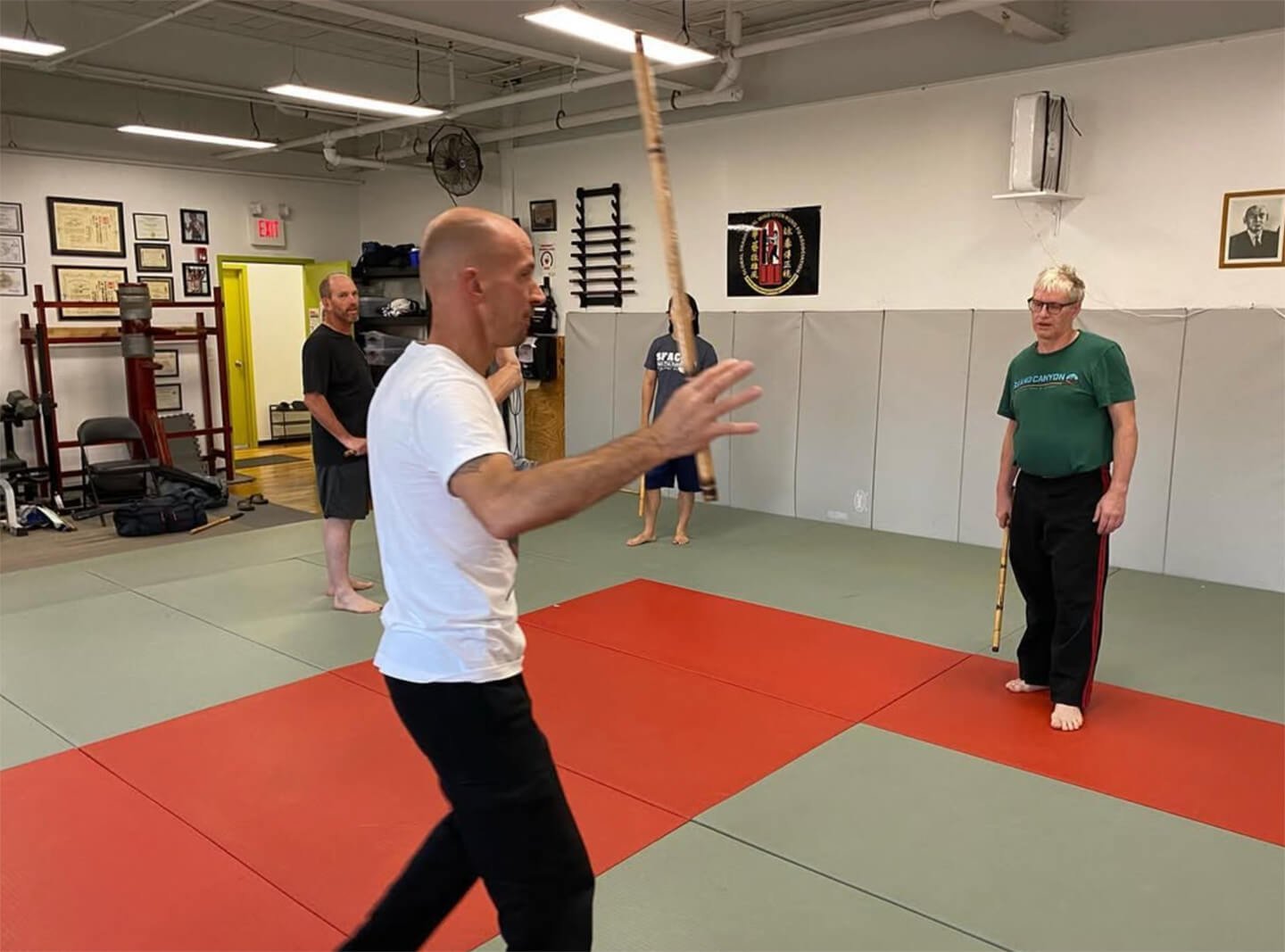
Become an Adaptive Fighter with Kali & Filipino Martial Arts
Become The Threat—Unarmed or armed.
Our comprehensive Kali & Filipino Martial Arts program shapes students to become more proficient martial artists with a skillset that can adapt to any situation
GENERAL INFORMATION
WHAT IS Kali?
Kali, or Eskrima/Arnis, is a Filipino martial art focused on weapons, especially bladed objects like knives and sticks, along with empty-hand techniques. Its fluidity and adaptability allow smooth transitions between combat ranges, employing various striking, locking, and grappling techniques
Kali starts with weapon training, teaching distance and movement applicable to unarmed combat. This focus on weaponry distinguishes Kali as both a practical self-defense method and a rich cultural art form.
WHY SHOULD I LEARN Kali & Filipino Martial Arts?
Great for Competition & Self-Defense
Our Kali & Filipino Martial Arts program focuses on building a foundation of smooth movements and adaptive mindsets, which improves athleticism and reflexes. By starting with Kali sticks, students are able to build on these foundations and translate them to all aspects of unarmed and armed combat—transforming them into highly competent martial artists for either competition or real-life situations.
Boosts Confidence and Well-Being
The practice also builds a sense of community and respect. The skills developed in Kali help with problem-solving and resilience in daily life. Whether for self-defense, fitness, or personal development, Kali offers valuable lessons that go beyond the training mat.
WHAT OUR STUDENTS ARE SAYING
MEET YOUR INSTRUCTOR
Paul Whyte
Paul is a U.S. Army War Veteran from Operation Desert Storm/Shield. Paul has studied martial arts for 20 years. His studies include: Jeet Kun Do, Tae Kwon Do ITF, American Karate and Filipino Martial Arts including Arnis, Kali and Escrima.
Book Your First Free class.
Take the first step towards becoming stronger by signing up for your first free class at EP Martial Arts. Join our supportive community and empower yourself with the confidence, discipline, and skills you need. Begin your martial arts journey today.
ADDITIONAL QUESTIONS
Don’t see your question here?
We’re eager to answer your questions! Please feel free to contact us at info@epmartialarts.com.
-
All students need the following items:
Kickboxing/Muay Thai shinguards
Pair of Kali sticks
MMA gloves
Students will not be allowed to spar unless they have…
Mouth guard
Cage helmet
Jock cup
-
Nope! T-shirts, tank-tops and shorts are fine. Rashguards and leggings are recommended for cold weather.
-
No one has to spar if they don't feel comfortable! Typically, we require any new students to come to class consistently for at least 6 months before they're allowed to spar. Even then, it will always be up to their comfort level.
The only exceptions to this are…
Students have had prior kickboxing and/or sparring experience.
Both the student and instructor agree that the student is ready to spar.
If you have any other questions or concerns about sparring, please talk with your instructor.
-
Unless a new student has had previous martial arts training, we require any new students to have trained with us for at least a year—including sparring in class—before signing them up for competitions or tournaments. Aside from coming to class, students who want to compete will be assessed based on their level of technique and fundamentals.
Competitive fighting of any sort is highly risky to anyone's health, and should be considered with the utmost care. While we applaud and support anyone who wants to compete in local fights or martial arts tournaments, we put a priority on safety before anything else.
For anyone to be eligible for competitions, they must meet the following requirements:
Must be no younger than 16 years of age.
Must have proof of health insurance (either parent/guardian's or own policy)
Must have their own gear and equipment that is up to the organization's standards


